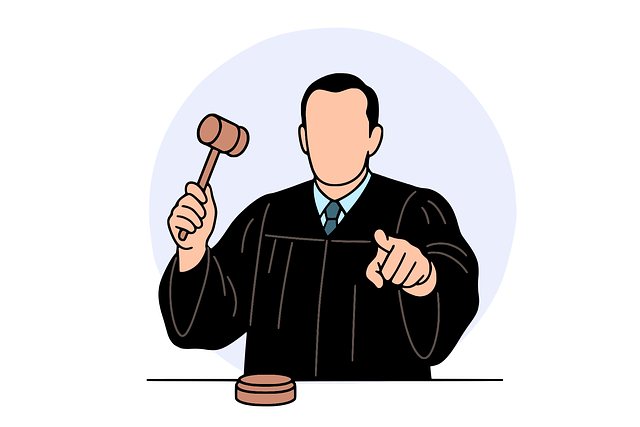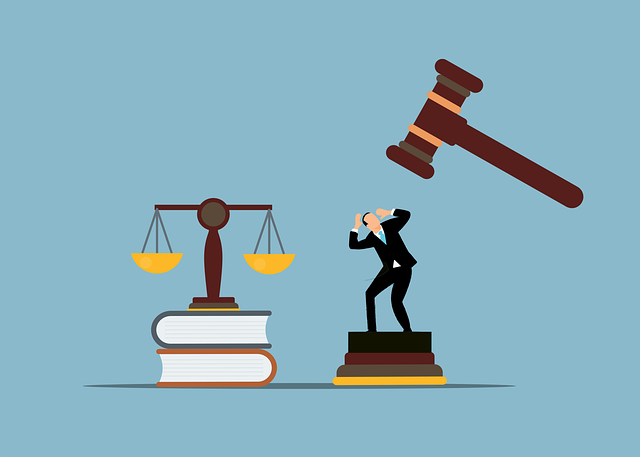Criminal justice defense is a complex field requiring a deep understanding of legal nuances to protect individuals accused of crimes. It involves navigating laws, regulations, and societal factors through strategies like early intervention, community outreach, and legal aid to foster fairness and reduce recidivism. A comprehensive strategy begins with a thorough review of case facts, evidence collection, and client background, followed by legal research, case law analysis, and strategic planning. Defense attorneys play a crucial role in negotiations, post-trial proceedings, and appeals, ensuring the integrity and justness of the criminal justice system.
In the intricate world of criminal justice, a comprehensive approach to defense is paramount. This article delves into the multifaceted strategies and legal nuances that define effective criminal justice defense. From understanding the complex landscape and early intervention techniques to crafting robust defense plans and mastering negotiation tactics, each step demands meticulous consideration. By exploring crucial elements like legal research, case law, and post-trial proceedings, practitioners can ensure fairness and advocate for their clients’ rights within the criminal justice system.
- Understanding Criminal Justice Defense: Navigating the Complex Legal Landscape
- Early Intervention and Prevention Strategies for Potential Criminal Cases
- Building a Strong Defense: Essential Elements of a Comprehensive Strategy
- Legal Research and Case Law: Unlocking Effective Defense Arguments
- Negotiation, Plea Bargaining, and Trial Preparation: A Step-by-Step Guide
- Post-Trial Proceedings and Appeals: Ensuring Fairness in the Criminal Justice System
Understanding Criminal Justice Defense: Navigating the Complex Legal Landscape

Criminal justice defense is a multifaceted and complex field that demands a comprehensive understanding of the intricate legal landscape. It involves navigating through various laws, regulations, and procedural rules to ensure the rights of individuals accused of crimes are protected. The legal system can be labyrinthine, with many nuances and complexities that require expert knowledge to unravel.
Understanding criminal justice defense means grasping not just the specifics of the crime but also the broader context in which it occurs. This includes recognizing the role of law enforcement, prosecutors, judges, and juries, as well as the impact of societal factors on both the accused and the legal process. By delving into these intricacies, legal professionals can provide robust defenses tailored to each unique case, ensuring fairness and justice for all involved.
Early Intervention and Prevention Strategies for Potential Criminal Cases

In the realm of criminal justice defense, early intervention and prevention strategies play a pivotal role in mitigating potential cases. By employing proactive measures, legal professionals can divert individuals from criminal pathways and address underlying issues before they escalate. This approach often involves community outreach programs, educational initiatives, and restorative justice practices that focus on at-risk populations. For instance, targeted interventions in schools or high-crime areas can provide support systems and alternative activities, thereby reducing the likelihood of future criminal involvement.
Preventive strategies also encompass legal aid and access to resources for those facing initial criminal charges. Early legal guidance can help individuals understand their rights and explore options other than a conviction. This includes pre-trial services, diversion programs, and negotiation tactics that steer defendants towards rehabilitation or alternative sentencing. Such interventions not only benefit the individuals involved but contribute to a more efficient criminal justice system by reducing recidivism rates and fostering a safer society.
Building a Strong Defense: Essential Elements of a Comprehensive Strategy

A comprehensive approach to criminal justice defense begins with building a robust and multifaceted strategy. The first step involves meticulously examining the facts of the case, gathering all relevant evidence, and understanding the client’s background and circumstances. This foundational work is crucial as it helps identify potential legal defenses, alibi witnesses, and any factors that might mitigate the accused’s liability or sentence.
A strong defense strategy should also include a thorough analysis of applicable laws and precedents, crafting compelling legal arguments, and preparing for various scenarios in court. Additionally, communication and collaboration with the client are vital; ensuring their active participation and understanding of their rights fosters trust and enables a more effective representation. This holistic approach ensures that every angle is explored, providing the best possible outcome in what can often be complex and challenging criminal cases.
Legal Research and Case Law: Unlocking Effective Defense Arguments

In the realm of criminal justice defense, legal research and case law are invaluable tools for crafting robust and compelling arguments. Lawyers must master the art of digging deep into judicial decisions and legal literature to uncover precedents that can shape their cases. By studying past cases, they gain insights into how judges have interpreted laws and statutes, enabling them to anticipate potential outcomes and tailor their strategies accordingly. This process is crucial in building a strong defense, as it allows attorneys to present well-reasoned arguments grounded in established legal principles.
Effective criminal justice defense relies on the ability to weave together relevant case law with specific facts of the current case. Lawyers must analyze and interpret these precedents, distilling key principles that can be applied to strengthen their client’s position. This meticulous research not only ensures a comprehensive understanding of the law but also empowers defenders to navigate the complex legal landscape, ultimately safeguarding their clients’ rights and interests.
Negotiation, Plea Bargaining, and Trial Preparation: A Step-by-Step Guide

In the intricate landscape of criminal justice defense, a comprehensive approach involves strategic planning at every stage. One such vital phase is negotiation, plea bargaining, and trial preparation. This process begins with thorough case evaluation, where lawyers analyze evidence, identify strengths and weaknesses, and assess potential outcomes. It’s crucial to understand the client’s objectives and preferences during this initial assessment.
The next step involves negotiating with prosecutors, aiming to reach a plea agreement that benefits the defendant while considering public safety. This negotiation process includes discussing charges, potential sentences, and any evidence that could be presented at trial. Plea bargaining is a delicate balance where legal counsel must advocate for their client while also assessing the risks of going to trial. Effective preparation for this phase ensures clients are fully informed about their options, enabling them to make informed decisions with the guidance of their defense team.
Post-Trial Proceedings and Appeals: Ensuring Fairness in the Criminal Justice System

After a trial, the process doesn’t always end for criminal justice defense attorneys and their clients. Post-trial proceedings and appeals are crucial aspects of ensuring fairness in the criminal justice system. These steps allow for further examination of evidence, legal arguments, and procedural errors that may have occurred during the initial trial. Not every case makes its way to an appeal, but for those that do, it offers a chance to rectify potential miscarriages of justice.
Attorneys specializing in criminal justice defense play a vital role in navigating these proceedings. They meticulously review trial transcripts, prepare detailed briefs, and present compelling arguments before appellate courts. The goal is to identify any deviations from legal protocols or misinterpretations of evidence that could have influenced the outcome. By strategically addressing these issues, defense attorneys advocate for their clients’ rights, ensuring that the criminal justice system remains fair and just.






